Q&A with Connor Buczek – Cornell Head Coach and Cannons LC midfielder
By Maddie Davis
We sat down with Cannons LC Midfielder & head coach at Cornell, Connor Buczek, to hear his thoughts on becoming the head coach. Enjoy!
What was the transition like from Assistant Coach to Head Coach at Cornell?
The first month was hectic with a lot going on and certainly a lot of people that deserved a touch. It was important to us and the Cornell lacrosse family, so it took a lot of time but was well worth it. Having been around Cornell Lacrosse, it was an exciting time, as none of these were first-time conversations. After the first month, we felt like we had our feet under us and were really able to move forward and figure out what the next challenge or opportunity was for our staff.
What does the Cornell lacrosse program mean to you?
This place is built on so much tradition and Richie’s Moran’s impact on this program is not overlooked. It’s certainly something I understood as a player here and as an assistant coach. Coaching this team is humbling, it’s an incredible honor. Cornell is really special and obviously near and dear to my heart. It’s built on years and years of success that was built on a fantastic culture with the right people. So we’re putting our stamp on it and keep moving this thing forward, but we understand we’re doing so in order to honor all those guys who came before us.
Is there anything specific from your time as an assistant that has translated into becoming a better head coach?
The biggest thing I learned as an assistant was how to talk about this place. I think for a long time you understand it intuitively and as a player it made a lot of sense, but a lot of it is just understanding how to speak about my experience here and hopefully the experience we’re looking to give other young men and the culture, the team aspect that we’ve built. For us this place is built on so much more than just talent, so our goal is to get the right people here and instill the right culture. Certainly learning to speak to it and to discuss that vision and make sure everybody can buy into that is as important as anything. We’re teachers, we’re communicators as coaches. We don’t spend all of our time on the field. In fact a small part of our time as coaches is on the field. So certainly learning how to speak about those things, how to get people on board, how to rally this group around us and our ideals and what we want to look like and who we want to be was the most important thing I learned from my time as an assistant.
Is there anything fundamentally different about being a head coach?
I wouldn’t say there’s anything fundamentally different. The cool part is I had a lot of background with this program and had spent a lot of time getting to know the ins and the outs of every part of this place. But realistically, like I said, there’s a standard here and the standard and the expectation was set far before I was here and hopefully will stay long after I’m here. The expectation for everybody – from freshman to senior to every staff member – is to leave this place better than you found it. We want to make sure everything we’re doing is making this place a little bit better. As the steward of this program my goal has been to make sure that we’re driving this thing forward and we’re moving the needle and we’re doing it the right way.
As a player at Cornell, did you envision someday becoming a head coach?
I don’t know if it was something specifically that I envisioned. I grew up around sports. My dad has worked in different areas of sports, so I’ve grown up around it my whole life and I really enjoyed locker rooms and the coaching aspect and I liked the competitive aspect and I liked just the camaraderie of it. Certainly when I was in college I don’t know if I necessarily knew I was going to be a college lacrosse coach, but I knew I was going to be involved in sports at some level or another. When I graduated I had the opportunity to get my MBA at Cornell and while doing so, I served as a volunteer coach. I was able to dip my toes in a little bit and see how I liked the coaching world. I fell in love with it immediately. I’ve been coaching at different levels while I was in college, specifically a lot of high school camps and clinics and teams and things during the summer. So having my first taste of college coaching experience, I loved it. I really enjoyed every part of it and I probably knew I was going to just from my experience as a college player. Certainly you don’t know until you know. I dipped my toe into it and I loved it and then when the opportunity came to stay full time, it was really, really exciting. Now obviously I’m sitting in the seat I am, so just grateful and fortunate for the opportunities that this place has given me.
Is there something that stands out from your playing days?
I think going back to how this place was described to be and how I was told there were going to be challenges and difficulties and it was going to be a place that certainly pushed me in my limits and outside my comfort zone. Then coming in my freshman year and having some struggles in the classroom and maybe not getting as much playing time as I was hoping for. Persevering through that first big challenge has paid incredible dividends for me. It was the first moment where I really felt like I was drowning a bit and really struggling to stay on top of everything that was being demanded of me. Being able to persevere, being able to pick myself up, dust myself off when the chips were a little down and to go on to have a successful career here and understand the perspective that gave me to persevere through my first trials and tribulations has forever changed me. Certainly something that I feel strongly about and we look to do. We look to challenge our guys, but also make sure the support’s there for those guys to persevere through their first challenges because a lot of high-level students, high-level athletes that we get here don’t have that many really significant challenges prior to stepping on campus. It’s our goal to prepare them for life long after Cornell. Helping them to conquer those challenges in whatever form they might come, whatever adversity they might face, is our No. 1 job as educators.


